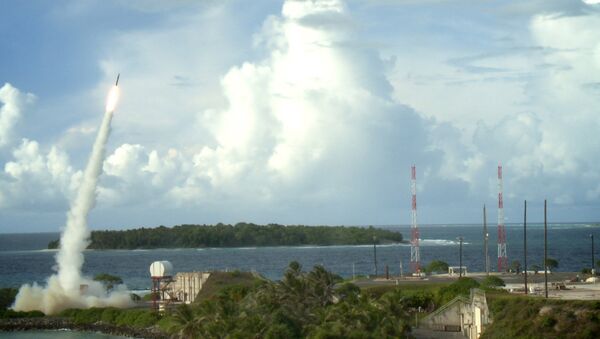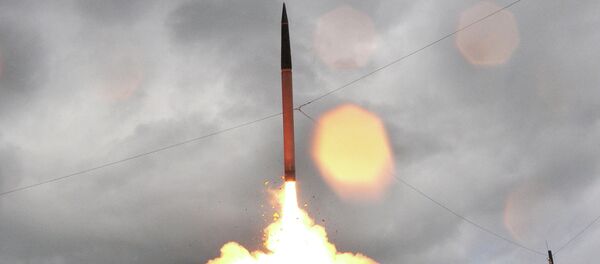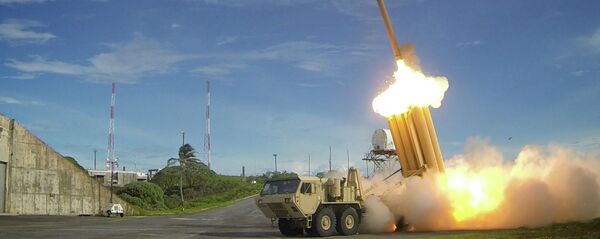“The US and the government of South Korea have agreed to install the anti-missile system in South Korea. China has staunchly expressed its [opposition] to such a deployment. The THAAD is a very powerful system that not only covers the territory of North Korea, but also expends far into Chinese territory thus changing the equilibrium on the Korean peninsula, as well as in large parts of China,” Viktor Gao said.
He added that the US missile system will also extend into large areas of Russia. Therefore, China has every legitimate reason to oppose this and will work very closely with countries, including Russia, to reject such a provocative deployment.
“The key to easing tensions on the Korean peninsula is not piling more and more weapons or anti-missile systems but to engage in peace and negotiations to resolve the fundamental reasons behind the divisions on the Korean peninsula,” Gao continued.
When asked if Washington and the West in general was interested in de-conflicting the Korean peninsula, Viktor Gao said that China firmly opposes the nuclearization of the Korean peninsula and has been working closely within the six-party framework and with the US and Russia.
“The US objectives are not clear. It is sending weapons to the Korean Peninsula as if it is preparing for a confrontation, thus giving Pyongyang more reason to build up its nuclear arsenal. This causes a deterioration of the situation and escalation of tensions on the peninsula.”
Mentioning the Russian and Chinese concerns about the global missile defense system ranging from a threat to any state to potential decapitation strikes against Moscow and Beijing, Viktor Gao said that China had every reason to be concerned.
“The US finds it hard to come to terms with the fact that China is becoming larger than the US in terms of economic growth and advancements in many different sectors. I think that China needs to prepare itself for the worst scenario of a possible confrontation with the US instigated by the military adventurism of the United States both in the South China Sea and on the Korean peninsula,” Gao said.
He mentioned other countries which have effectively been held hostage by the Unites States’ policy, like for example the Philippines whose President now accuses the US of using his country as an instrument against China, as if the Philippines were no longer a sovereign state.
“All this indicates that the US factor has played a very important role in ratcheting up tensions in the South China Sea and worsening of relations between China and the Philippines,” Gao said.
He added that countries in various parts of the world need to think very carefully about whether the US is playing a constructive role or whether is it using the so-called Freedom of Navigation law “to insert itself between China and the Philippines and between China and the other Asian countries.”
“They should also think whether they want to become instruments of US policy or whether they can better service the interests of their own people by being neutral.”
“We should refuse to be victims of war and confrontation. We want to have as many friends as possible and promote peace and stability in this part of the world,” Viktor Gao said in conclusion.
South Korea decided to deploy the US THAAD missile defense system on its territory. The system is expected to engage at the end of 2017. Washington and Seoul cited a missile threat from North Korea as the reason for the deployment.






